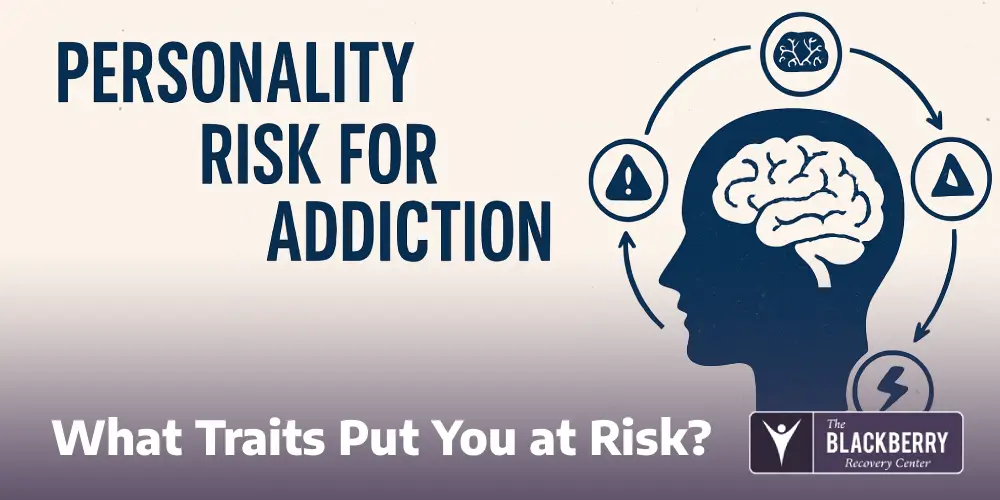Addiction can happen to anyone regardless of personal beliefs or background. Nonetheless, studies show that some people are prone to drug addiction. There are a wide variety of factors that contribute to this disease such as genetics, medical history and age. Even different types of drugs and the methods of using them play a significant role. Among all of these different components, however, what most often plays the biggest role is having a personality risk for addiction.
There’s no one size fits all addictive personality
The idea of a generic addictive personality doesn’t exist. More and more research is proving that there isn’t one specific personality type that’s at risk. In fact, some seemingly contradictory personality traits may lead people to become addicted to drugs or alcohol.
Popular culture portrays people who are social outcasts, criminals or suffering from personal problems are as those who most often abuse drugs. While this may be true in some cases, there are many people who society would paint as the perfect picture of mental health who are also addicts.
Key personality risks for addictions
With that said, there are certain traits and behaviors in people are recognized for having a higher chance of developing addictions to substances. People with these traits are also less likely to use these substances in moderation.
Some of the key signs are people with high levels of sensation seeking personality traits including:
- obsessive and compulsive
- risk-taking
- apathetic
- low levels of self-control
- disconnected
- overly cautious
- related to people with addiction
- suffering from other mental health disorders
Let’s examine some of these personality risks for addiction in more detail:
The risk taker
The thrill-seeker is one of the personality traits of people most likely to suffer from addiction. These people often indulge in impulsive behavior and exhibit little control when experimenting with dangerous activities. This makes them more likely to use drugs.
New research shows this has to do with levels of dopamine in the brain. People with high dopamine levels have a lower sensitivity to it. This means they need more intense experiences to feel the pleasure that someone with lower levels would need to feel pleasure. This is directly related to the way someone has a higher likelihood of experimenting and often becoming addicted to drugs.
The cautious person

The cautious person
People who have difficulty with social relationships and may regard themselves as more cautious are likewise susceptible to addiction. Many of these people may concurrently suffer from other conditions such as depression and anxiety.
They may then turn to self-medication as a way to manage feelings like loneliness and disconnection. This can become cyclical with a person needing these substances to feel good on a daily basis leading to tolerance and later addiction.
The obsessive-compulsive

The obsessive-compulsive
People who struggle with obsessive-compulsive personality disorder are also susceptible to addiction. In this case, it’s the opposite of individuals who have a lack of self-control. Instead, when people overly manage their impulses they may end using substances as a symptom of this behavior.
Addiction can be the result of a compulsion to use a substance rather than taking a risk and trying something new. For this reason, people with intense focus and habits have a high risk of addiction.
Genetic predisposition
Studies have shown that people related to individuals suffering from addiction are at higher risk themselves of drug abuse. Scientists have discovered there are parts of the genome that have been directly connected to certain addictions. In the future, scientists may be able to use this information to identify the chances of a person developing an addiction.
With that said, genetics don’t automatically determine if someone will develop addiction. Environmental factors also play a substantial role in increasing the risk of drug abuse. For now, the most important lesson to draw is that people who have relatives suffering from addiction need to be extra careful since they are at higher risk of substance abuse.
How to help someone with a personality risk for addiction

How to help someone with a personality risk for addiction
It’s essential for all of us to be able to identify triggers and parts of our personalities that may lead to developing health issues and substance abuse problems. One of the best ways to do this is through different kinds of behavioral therapies. This type of care can help us acquire self-control skills, a key factor in preventing addictions from developing.
If you are battling with addiction, treatment programs can also incorporate these therapies along with addiction medication. This route will can not only help you stop using substances but also help you maintain your sobriety and gain control over traits linked to addiction.
FAQ
- What personality traits are linked to a higher risk of addiction?
Research associates traits such as impulsivity, sensation-seeking, neuroticism (negative emotionality), low conscientiousness, nonconformity, and low stress tolerance with an elevated addiction risk. - Is the idea of an “addictive personality” a recognized medical diagnosis?
No. The concept is controversial and not officially recognized. Addiction is influenced by a complex interplay of genetics, environment, mental health, and situational factors, not just personality - How do neuroticism and conscientiousness interact in addiction risk?
High neuroticism (tendency toward anxiety, stress, and negative emotions) can weaken the protective effect of conscientiousness (self-discipline, organization). In other words, even individuals high in conscientiousness may be vulnerable to addictive behaviors if they also score high in neuroticism - Can addiction risk traits apply to non-substance behaviors too?
Absolutely. These personality traits can predispose individuals to both substance-related addictions (like alcohol or drugs) and behavioral addictions (such as gambling, internet use, or compulsive shopping) - How can someone with high-risk personality traits reduce their addiction vulnerability?
Early strategies include developing emotional regulation skills, building stress resilience, seeking supportive networks, and using evidence-based therapies such as Cognitive Behavioral Therapy (CBT), Dialectical Behavior Therapy (DBT), and Motivational Interviewing




